From bee farms to honey villages, Cyprus is doing its bit to boost vital bee population
Just a short time ago, bee-related projects around the island were really picking up, and not a moment too soon as much of our survival depends on these insects, which pollinate seventy out of the top 100 human food crops and supply about 90 per cent of the world’s nutrition.
Has the coronavirus put a stop to these much-needed activities?
What happened to the Achna bee park, under construction in 2019? Do the lack of tourists and other visitors mean it will now not open?
How about the honey villages around Larnaca, which only lately started to create a tourism-based programme with tours to promote their products?
Last week I returned to what was to be Achna bee park, eighteen months after my first visit.
The park has come a long way since, and the gravel car park, the entrance and playground owner Antonis Elia talked about in 2019 have become a reality.
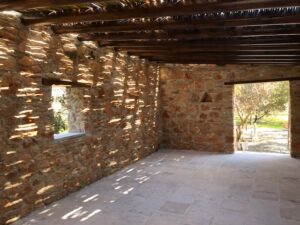
The building which will house the museum of the bee park at Achna has been made of traditional materials
The park will open in June, he is happy to say.
Far from making him want to give up, the virus had a positive effect on the development he said.
“It gave me time to finish everything, as there couldn’t be any visitors earlier.”
All the playground needs is a safe flooring for the kids and the museum has been built, with local stones, thick walls, a floor of Cypriot marble and a ceiling of bamboo, all in the traditional Cyprus way and in line with Natura 2000 rules.
Inside the museum is just one very big beehive for the visitors to look at, covered by glass inside the building, and open from the outside so the bees can come and go. This has been connected to a microphone, which will record the buzzing of the bees so visitors will be able to hear the humming everywhere they go.
There is an observation point overlooking the nearby Achna reservoir, a nearly finished cafeteria and a space for selling products – all made on the premises – as well as an exhibition room, where everything there is to know about bees will be displayed.
Apart from the buildings, Elia has also worked on increasing the choice of food the bees have. He is still busy planting a variety of trees and shrubs to ensure their diets are as diverse as possible.
Not only does he offer the bees herbs such as rosemary which provide an important nectar source for the insects, but he has also planted several varieties of the herb.
Come June, he anticipates no difficulty finding his first visitors, as multinational tourism company TUI has already shown interest, since this is a unique project for this part of the island, and a wide network of local contacts will also help.
The beekeepers of the Larnaca honey villages are also using the time with few visitors constructively, developing what they have started before the virus struck and adding new projects.
“Despite the pandemic, we have been working very closely with the deputy ministry of tourism, the Larnaca tourism board and the beekeepers in order to finalise the action plan and maintain the sustainable development of the honey routes,” director of the Troodos network Yioula Michaelidou Papakyriacou explained.
She said training the beekeepers has been done, and a presentation of the criteria for their official participation in the honey routes, criteria created by the deputy ministry of tourism in collaboration with the Troodos network.
The stakeholders created signs for all honey villages, which will soon be placed to guide the visitors to points of interests, as well as maps at strategic points to lead the visitors to the routes.
“The deputy ministry of tourism has announced new schemes for businesses and community councils and a lot of applications are prepared for the development of existing businesses as well as new places of interest within several honey villages, such as thematic squares, educational centres,” the director added.
In addition, beekeepers, agrotourism establishments, experiential tourism professionals and community councils have met with Larnaca tourism board and Troodos network representatives, in order to start the procedure to register an association which will support all the initiatives in the area, and the sustainability and development of the honey routes.
Planting more bee-friendly herbs is another area under development.
Other businesses have not been idle either.
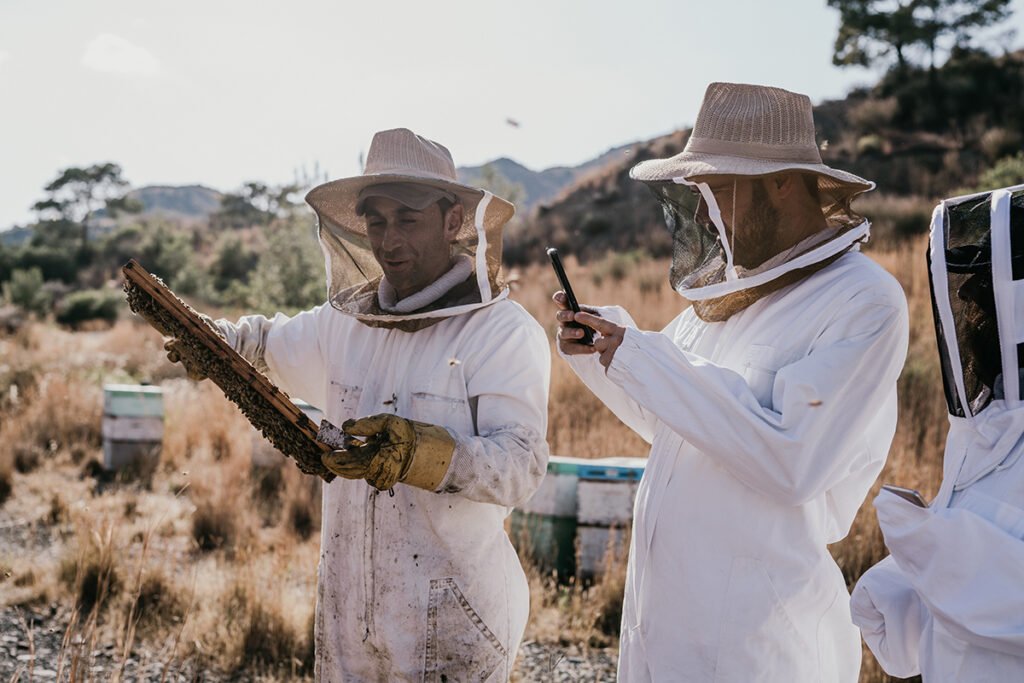
Workers at the honey factory Oros Machairas in Odou which also makes other bee products such as soaps
Maria Solomonidou, production manager at honey factory Oros Machairas in Odou, one of the honey villages, said her company has used the coronavirus period to strengthen its online presence.
“We have created an e-shop and a new website which are working well,” she commented. They also advertise on Facebook, highlighting that they have a garden for hosting events such as weddings and birthdays.
“Anyway, our company is not based on tourists. This was a new section we just introduced last year but unfortunately due to the coronavirus it didn’t work. We have had a few visits from local tourists, but maybe five per cent of what we had before.”
There are less sales to restaurants and customers in general spend less money, however, the company is saved by supermarket sales – and by constantly looking out for new opportunities.
“We offer other products apart from honey and have created a range of cosmetics made from bee wax,” she explained.
The enthusiasm by all involved is likely due to the fact that bee-related activities are not just to promote people’s businesses but all stakeholders are aware their contribution is vital to saving the environment.
As Michaelidou Papakyriacou said, stakeholders in the honey villages are not only concerned with product sales, but to a great extent with sustainability and education.
“According to the findings of the Earthwatch Institute, which were presented at the last meeting of the Royal Geographical Society of London, bees are the most important species on the planet. But scientists have come to another conclusion: bees are already in danger of extinction,” Oros Machaira posted on its Blog.
“According to recent studies, 90 per cent of bees have become extinct. The reasons are many and vary depending on the region, but among the most important are: massive deforestation, lack of safe areas for nests, lack of flowers, uncontrolled use of pesticides and soil changes.”
“The more variety of foods bees have the better for the bees and therefore the better for all of us,” commented Antonis Elia, who never uses any pesticides on his premises to ensure the survival and well-being of the bees – and ultimately of humans.

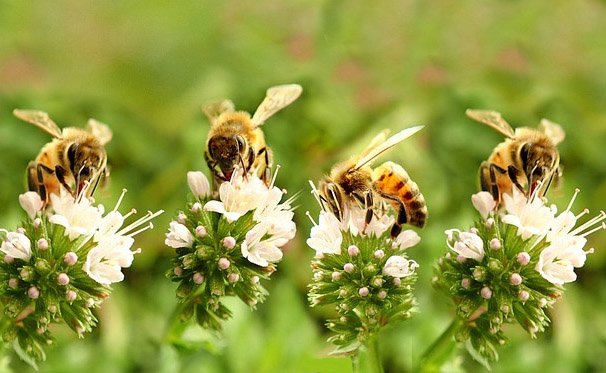
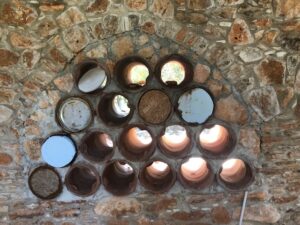
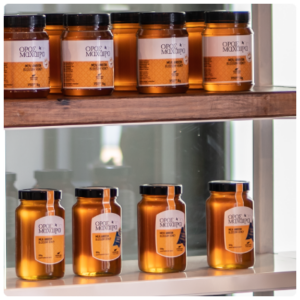





Click here to change your cookie preferences